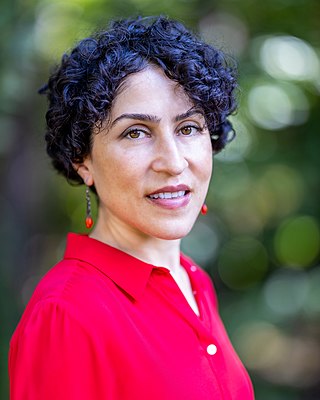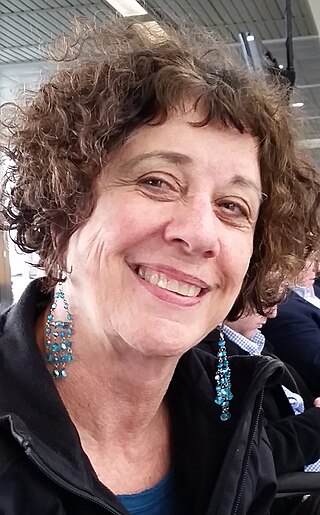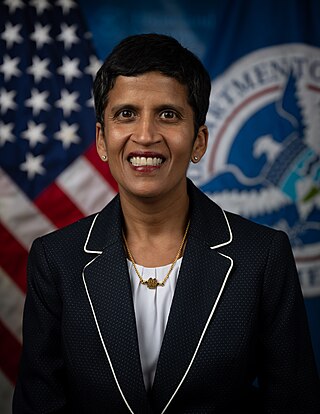
The American Civil Liberties Union (ACLU) is an American nonprofit civil rights organization founded in 1920. ACLU affiliates are active in all 50 states, Washington, D.C., and Puerto Rico. The ACLU provides legal assistance in cases where it considers civil liberties at risk. Legal support from the ACLU can take the form of direct legal representation or preparation of amicus curiae briefs expressing legal arguments when another law firm is already providing representation.
The American-Arab Anti-Discrimination Committee (ADC) states that it is "the largest Arab American grassroots civil rights organization in the United States." According to its webpage, it is open to people of all backgrounds, faiths and ethnicities and has a national network of chapters and members in all 50 states. It claims that three million Americans trace their roots to an Arab country.
Dale Minami is a prominent Japanese American civil rights and personal injury lawyer based in San Francisco, California. He is best known for his work leading the legal team that overturned the conviction of Fred Korematsu, whose defiance of the incarceration of Japanese Americans during World War II led to Korematsu v. United States, which is widely considered one of the worst and most racist Supreme Court decisions in American history.
Paul, Weiss, Rifkind, Wharton & Garrison LLP is an American multinational white-shoe law firm headquartered in New York City. The firm maintains an all-equity partnership with 178 partners.

Maya Lakshmi Harris is an American lawyer, public policy advocate, and writer. Harris was one of three senior policy advisors for Hillary Clinton's 2016 presidential campaign's policy agenda and she also served as chair of the 2020 presidential campaign of her sister, Kamala Harris.
Michael Wishnie is a Clinical Professor of Law at Yale Law School.
Padilla v. Commonwealth of Kentucky, 559 U.S. 356 (2010), is a case in which the United States Supreme Court decided that criminal defense attorneys must advise noncitizen clients about the deportation risks of a guilty plea. The case extended the Supreme Court's prior decisions on criminal defendants' Sixth Amendment right to counsel to immigration consequences.
Human Rights Initiative of North Texas, Inc. (HRI) is a non-profit organization that provides free legal assistance and social services to refugees and immigrants in the North Texas area who are the victims of human rights abuses. It was founded in 1999 by attorney Elizabeth "Betsy" Healy and social worker Serena Simmons Connelly. HRI assists clients through two main programs: the Asylum program and the Women and Children's program. The majority of legal cases are handled by a large network of volunteer attorneys.

Jameel Jaffer is a Canadian human rights and civil liberties attorney and the inaugural director of the Knight First Amendment Institute at Columbia University, which was created to defend the freedoms of speech and the press in the digital age. The Institute engages in "strategic litigation, research, and public education." Among the Knight Institute's first lawsuits was a successful constitutional challenge to President Trump's practice of blocking critics from his Twitter account.

The United States government holds tens of thousands of immigrants in detention under the control of Customs and Border Protection and the Immigration and Customs Enforcement (ICE).
Zadvydas v. Davis, 533 U.S. 678 (2001), was a case decided by the Supreme Court of the United States. The court ruled that the plenary power doctrine does not authorize the indefinite detention of immigrants under order of deportation whom no other country will accept. To justify detention of immigrants for a period longer than six months, the government was required to show removal in the foreseeable future or special circumstances.

The American Civil Liberties Union of New Jersey (ACLU-NJ) is a nonpartisan, not-for-profit civil rights organization in Newark, New Jersey, and an affiliate of the national American Civil Liberties Union. According to the ACLU-NJ's stated mission, the ACLU-NJ operates through litigation on behalf of individuals, lobbying in state and local legislatures, and community education.

Azadeh N. Shahshahani is an American human rights attorney based in Atlanta. She is the legal and advocacy director for Project South. She previously served as president of the National Lawyers Guild and director of the National Security/Immigrants' Rights Project for the American Civil Liberties Union (ACLU) of Georgia.

John de Leon is a retired Cuban-American attorney known for his work on immigration and civil rights issues. His cases were the subject of reports in The New York Times and ABC News and he was a frequent guest on Spanish-language news and opinion programs and local media discussing immigration and other human-rights topics. He also appeared as a legal commentator on CNN.

Deportation and removal from the United States occurs when the U.S. government orders a person to leave the country. In fiscal year 2014, Immigration and Customs Enforcement conducted 315,943 removals. Criteria for deportations are set out in 8 U.S.C. § 1227.

Barbara Hines is an American immigration rights attorney. She is the founder of the University of Texas Law School immigration clinic. Hines is recognized for her defense of the rights of immigrants, coming to national attention for her work in winning the release of families detained in the T. Don Hutto Residential Center in Taylor, Texas in 2008.
David Carliner was an immigration, civil liberties, and civil rights lawyer in Washington, D.C. Among the earliest practitioners of American immigration and naturalization law, he was an early combatant of anti-miscegenation laws, challenged the segregation of public accommodations, and fought for the rights of sexual minorities to enter the country and have full employment rights in the federal government. Carliner was chair of the District of Columbia Home Rule Committee and was responsible for the first modern home rule reforms in 1967. He served as the general counsel of the American Civil Liberties Union (1976–1979); helped to found the ACLU's National Capital Area chapter and Global Rights ; and served on the boards of the ACLU (1965–1983), the American Jewish Committee (1969–1971), and a variety of other organizations. He was the author of the ACLU's 1977 handbook on immigrants' rights and a coauthor of its 1990 revision.

Executive Order 13769 was signed by U.S. President Donald Trump on January 27, 2017, and quickly became the subject of legal challenges in the federal courts of the United States. The order sought to restrict travel from seven Muslim majority countries: Iran, Iraq, Libya, Somalia, Sudan, Syria, and Yemen. The plaintiffs challenging the order argued that it contravened the United States Constitution, federal statutes, or both. On March 16, 2017, Executive Order 13769 was superseded by Executive Order 13780, which took legal objections into account and removed Iraq from affected countries. Then on September 24, 2017, Executive Order 13780 was superseded by Presidential Proclamation 9645 which is aimed at more permanently establishing travel restrictions on those countries except Sudan, while adding North Korea and Venezuela which had not previously been included.
Deborah N. Archer is an American civil rights lawyer and law professor. She is the Jacob K. Javits Professor at New York University and professor of clinical law at New York University School of Law. She also directs the Center on Race, Inequality, and the Law and the Civil Rights Clinic at NYU School of Law. In January 2021, she was elected president of the American Civil Liberties Union, becoming the first African American to hold the position in the organization’s history.

Shoba Sivaprasad Wadhia is an American lawyer serving as the officer for civil rights and civil liberties of the United States Department of Homeland Security since 2023. She is an associate dean for diversity, equity, and inclusion, the Samuel Weiss Faculty Scholar, and a clinical professor of law at Penn State Law.











